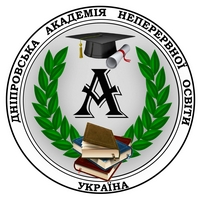CLASSIC AND MODERN APPROACHES TO PUBLIC POLICY ANALYSIS
Abstract
The article examines in detail classical and modern approaches to the analysis of public policy, which cover a wide range of aspects and methods of studying political processes. The author emphasizes that each of the approaches contributes to a deeper understanding of various aspects of political dynamics and interaction between different actors. The institutional approach highlights the importance of formal and informal rules, norms, organizational structures and mechanisms that determine the behavior of political actors and ensure the stability and effectiveness of the implementation of political decisions. This allows us to build a clear picture of how institutions influence decision-making and contribute to the harmonization of political processes. The behavioral approach, in turn, emphasizes the human factor, which is important for understanding social interactions, motivations and actions of individuals that directly or indirectly affect policy formation. The network approach focuses on the analysis of the interaction of numerous actors in the political process, which is extremely relevant in the context of globalization and the growing role of civil society. It provides an opportunity to analyze the interaction between state bodies, private entities, public organizations and international actors. The ethical approach is an important tool for analyzing compliance with moral and legal standards in political governance, helps to promote the formation of fair, transparent and accountable mechanisms for making political decisions, orienting them to ensuring the common good and preserving the rights and freedoms of citizens. The involvement of ethical principles in the political process helps to strengthen trust in state institutions, prevent corrupt practices and improve interaction between the state and civil society. It is concluded that each of these approaches makes a unique contribution to a comprehensive understanding of public policy, offering different tools and perspectives for the analysis of political processes. The interaction of these approaches allows creating a multidimensional model of studying political decisions, which contributes to the formation of more effective, fair and sustainable mechanisms of public governance.
References
2. Богуславська К. О. Мережевий підхід у дослідженні зв’язків політичних акторів / Катерина Олександрівна Богуславська : автореф. дис. ... канд. наук: 23.00.01. 2008. 19 с.
3. Болотіна Є. В., Стешенко Н. Л., Бородай А. В. Інституційний метод аналізу політичної системи. Регіональні студії, 2023. № 32, С. 41-46
4. Вінникова Н. А. Вплив політичних мереж на прийняття політико-управлінських рішень. Стратегічні пріоритети. 2013. № 1 (26). С. 38-42.
5. Вступ до аналізу державної політики: Навч. посіб. / В. Романов, О. Рудік, Т. Брус. Київ: Вид. Соломії Павличко «Основи», 2001. 238 с.
6. Інститут президенства у світі. Хто є хто? /Упор. А. Романюк, Л. Скочиляс, Ю. Шведа. Львів: ЦПД, 1999. 85 с.
7. Кілієвич О. Англо-український ґлосарій термінів і понять з аналізу державної політики та економіки. Київ: Вид. Соломії Павличко «Основи», 2003. 510 с.
8. Матвєєв В. В., Матвєєва О. М., Щепіна Т. Г. Біхевіористичний підхід в управлінні. Бізнес Інформ. 2021. №4. C. 257–261
9. Тертичка В. Державна політика: аналіз та здійснення в Україні. Київ: Вид. Соломії Павличко «Основи», 2002. 750 с.
10. Штирьов О. М. Етична модель управління: концептуальний підхід. Державне будівництво. 2024. № 1 (35). С. 281–289

 ISSN
ISSN  ISSN
ISSN 

